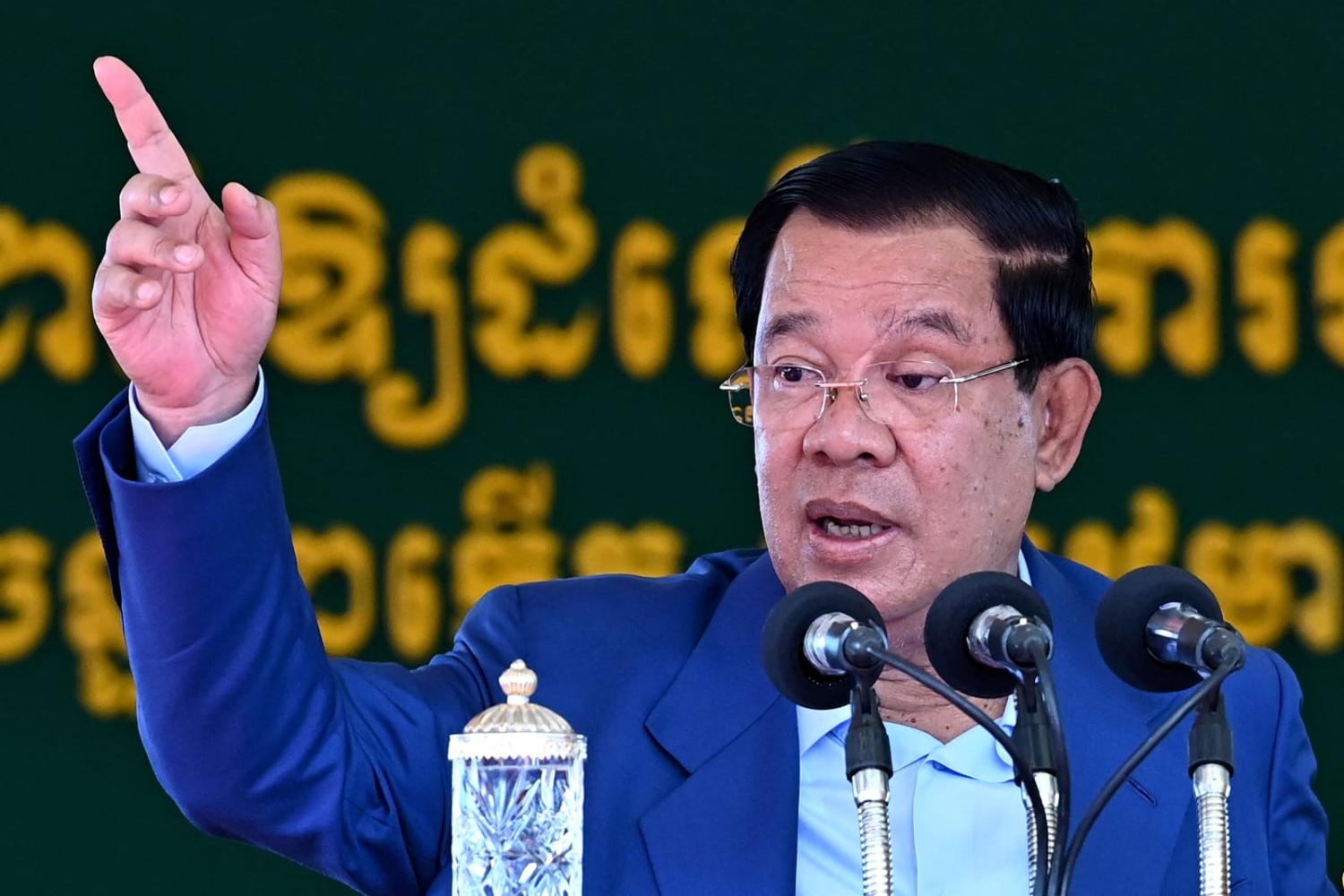He has been around for so long that he seems to have been the classic example of the legendary Banyan tree, a politician who was so powerful that no one else would emerge from his shadow. But that image distorts the history of Hun Sen’s rise to power, a necessary background to his announcement that he will resign next month from the prime minister’s job he has held since 1985.
Most particularly, the Banyan image fails to take account of the way in which Hun Sen overcame challenges within his own political grouping, seized the initiative after the 1993 United Nations-sponsored elections, and was ready to resort to naked force in 1997 when he feared that he might face a real threat from Prince Norodom Ranariddh’s royalist party FUNCINPEC. It also gives far too little credit to Hun Sen’s skill in managing relations with both China and Vietnam while domestically overcoming King Norodom Sihanouk’s efforts to offer an alternative focus of power, leading to Sihanouk’s second abdication in 2004.
All of this has to be measured against Hun Sen’s readiness to resort to political and physical intimidation. He has relied on the heavy-handed use of the forces of order and the complaisant cooperation of a corrupt legal system. There is no doubt that Cambodia today has been shaped by his determination that an increasingly authoritarian form of government will prevail over domestic and foreign criticism.
So what will his chosen successor, his son General Hun Manet, do with his inheritance, and will he be free to plough his own furrow? The short answer is that we don’t know, but short-term change seems unlikely. Hun Sen declared only last month, telegraphing a handover even while campaigning for election, that “even if I am no longer a prime minister, I will still control politics as the head of the ruling party”.
For years, analysts have contemplated the likelihood of Hun Manet’s succession with the glib description of this possibility being “the Singapore model”. But that tag doesn’t fit what has transpired in Cambodia. Unlike what has happened in Singapore, with Lee Kuan Yew anointing his eldest son Lee Hsien Loong, Hun Manet does not come to his new role after a long period as a politician.
Hun Manet is instead a well-educated army officer who has been on the political sidelines until Hun Sen indicated last year his intention that his son should succeed him. He certainly does not carry the reputation of his father – of being a ruthless political wheeler dealer known for earthy speeches that evoke remarkable echoes of Sihanouk in his prime.

In short, Hun Manet is being asked to do what all authoritarian leaders seek to ensure when their time comes to step down: to preserve their predecessor’s position in retirement. How well and ready is Hun Manet placed to do this?
In the short term, probably well enough placed because his father is not going to disappear from the political scene. Provided Hun Sen’s health is maintained – and we really don’t know how well or otherwise the 70-year-old might be – Hun Sen is not going to let power slip from his grip. To the contrary, there is every reason to judge that he will continue to dictate the main lines of any new government’s policies.
The key unanswered and unanswerable questions relate to what might happen if Hun Sen is no longer able to be his son’s administration’s éminence grise. Analysts used to argue about factions within the Vietnamese politburo, but seldom have spent the same amount of time in efforts to discern similar contrary trends in Hun Sen’s administration, at least not since Hun Sen bested Chea Sim and his supporters early in this first decade of the present century.
We may not know what factions exist in Cambodia, but we do know that ambition is an ever-present feature of politics. How these factors come into play will be the tests that Hun Manet will have to face, not perhaps in the short term so long as his father is still alive.
Hopes, if not expectations, that Hun Sen’s departure from office will lead to an upsurge of democratic activity or some form of “People Power” of the kind that swept Philippines dictator Ferdinand Marcos from office in the 1980s are likely to remain just that, hopes for a better and very different Cambodia.

